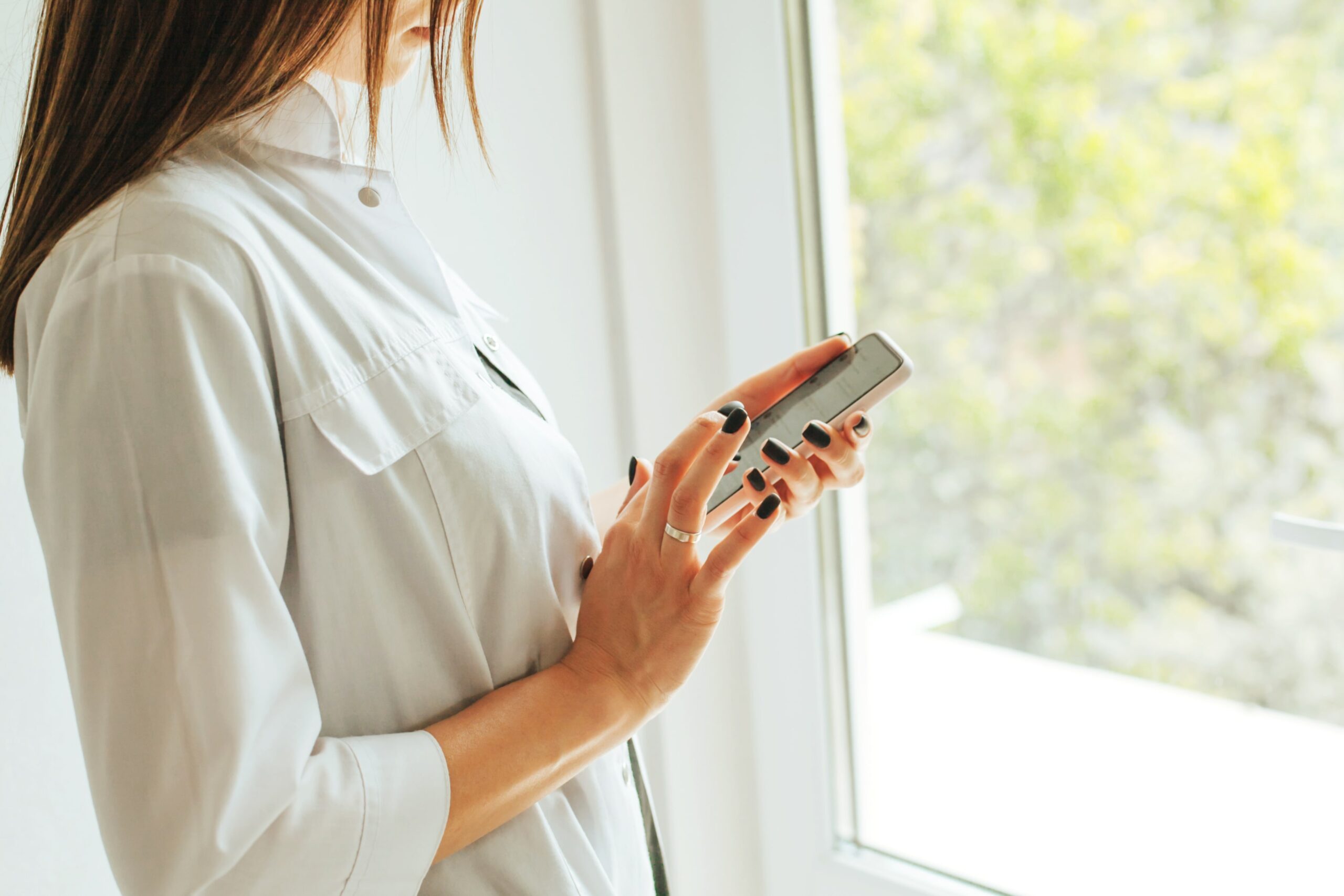The Benefits of a Personal Electronic Device Policy in Chiropractic Practices
May 2025
Reading time: 5 minutes

More than ever, people are using personal electronic devices (PEDs) — such as laptops, smartphones, tablets, e-readers, and other ‘smart’ devices — as part of everyday life. This trend will undoubtedly continue to grow as a result of technological advances and consumer demand.
Although these devices can be entertaining and convenient, they also can create challenges in the workplace, including healthcare settings. The use of PEDs may create employee productivity issues, affect patient care standards, and lead to privacy and security concerns. Healthcare practices should anticipate the potential risks associated with PEDs and create sound policies about PED use in the practice setting to mitigate possible negative outcomes.
A Double-Edged Sword
PEDs offer many benefits when used responsibly, but inappropriate use can result in a range of outcomes, from minor irritation to serious problems. Consider the following example of two healthcare practice employees who both use PEDs during working hours:
Amanda is a working mom who has a toddler in daycare. Typically, she checks in with her daycare provider once a day around 12:30 p.m. These ‘touch-base’ calls generally take only a few minutes. Calls like these are common in the workplace and were typical in many work environments even before phones became mobile. Amanda isn’t taking advantage of her employer; rather, she is attempting to avoid workplace distractions by ensuring that things are going well with her child. Few employers object to this type of communication — whether on a work phone or a PED.
The same healthcare practice that employs Amanda also employs Megan. Megan has two elementary school-aged children who are watched by a neighbor in the afternoons. Just as Amanda calls to check on her toddler, Megan calls her babysitter in the afternoon to check on her kids. However, Megan is good friends with the babysitter, so these calls are rarely brief.
Typically, Megan multitasks while she talks to the babysitter. She walks around the office speaking into a wireless headset. At the same time, she completes various clerical tasks, and sometimes even interacts with patients. She may schedule appointments or collect payments, all while chatting on the phone.
Many times, Megan’s conversations with the babysitter include personal information, (e.g., details about arguments with friends or ongoing family issues). Further, Megan texts her husband throughout the day and checks in on her personal social media accounts frequently.
The healthcare practice that employs Amanda and Megan does not have a staff policy about PEDs, personal calls, or personal use of social media. Without a policy in place, it might be difficult to ask Megan to alter her phone habits. After all, Megan continues to work while she’s on the phone — Amanda doesn’t. If Amanda has always been allowed to make personal phone calls to her daycare provider, then isn’t Megan being discriminated against if she is forbidden to call her children’s babysitter?
The bottom line is that the accommodation of allowing employees such as Amanda to make a reasonable number of personal phone calls during work hours shouldn’t be misinterpreted if another employee puts a different spin on the matter.
Risk and Safety Concerns
Multitasking and multiple distractions can increase the risk of errors. In any healthcare environment, errors may pose harm to patients. In the example of Megan, errors might range from noting a patient’s appointment for the wrong day or time (an inconvenience) to misfiling a biopsy report (which could lead to a potentially significant injury). Distractions caused by multitasking also can annoy patients who, although unharmed, may perceive these interruptions as disrespectful or dangerous.
In terms of privacy and security, violations of personal privacy can occur if conversations are overheard — not just by individuals in the office, but by persons who are on the other end of a telephone conversation. Further, if telephone conversations can occur anywhere within the office, inadvertent eavesdropping may increase.
The use of PEDs in the workplace may also tempt employees to engage in inappropriate activities. Reports of cybersecurity and HIPAA breaches proliferate on a nearly daily basis, and healthcare organizations have reported significant security issues as a result of employees using cellphones to take inappropriate pictures of patients or patient information (e.g., health information, credit card numbers, and social security numbers), illegally transmitting health records, and other types of criminal activity.
Policy Planning
Healthcare practices should commit to providing safe, courteous, and efficient patient care. As part of this effort, implementing an employee policy related to the use of PEDs is prudent. The policy should be broad to cover a variety of situations and to be as fair as possible. In some instances, practices might need more than one policy to cover all PEDs.
In relation to the prior case examples, the practice could implement a policy stipulating that employees make personal phone calls during breaks. Megan can call her children’s babysitter during her afternoon break, and Amanda can touch base with her daycare provider during her lunch break.
Sometimes employees might need to make or receive personal calls outside of personal time (e.g., the daycare provider calls to report that Amanda’s toddler has a fever, or the school calls because one of Megan’s children was hurt on the playground). These calls are likely infrequent, and employees can promptly manage them – or, if they are not true emergencies, employees can defer the calls until a more appropriate time.
Practice policy should prohibit employees from carrying PEDs with them throughout the office and chatting with family/friends during work time. Rather, the devices should be kept in employees’ purses, bags, or desks; they can check and respond to personal calls during breaks.
Also, the practice’s PED policy should prohibit the photographic use of phones in the office, which could potentially lead to security and HIPAA breaches. As part of annual HIPAA training, employees should receive education about risks associated with PEDs, and they should fully understand their responsibility not to share patient information or photos via their phone, on social media, and/or online. Abuse of this policy might be cause for immediate termination of employment.
Finally, employees should be educated about the practice’s PED policy — and the consequences of violating the policy — as part of new staff orientation and periodic staff training.
In Summary
The use of PEDs poses challenges in workplace settings, including healthcare practices. Issues related to productivity, distractions, and privacy/security create risk management and patient safety concerns. Creating a policy that specifically addresses personal phone calls and the use of PEDs in the practice setting can help healthcare practices establish reasonable and fair expectations, mitigate safety and security risks, and provide courteous care and service.
Additional Risk Tips content

How to Start a Chiropractic Cash Practice
Thinking of starting or transitioning to a chiropractic cash practice? This guide walks you through the benefits, challenges, and essential steps…

Maintaining Professional Boundaries in Chiropractic Care
Maintaining professional boundaries is essential in healthcare. When boundaries are crossed —or the patient perceives they are crossed — the…

Finding Community in Your Chiropractic Career
A chiropractic career can be demanding, and it’s easy to feel alone in the journey. Being isolated can hinder your…
This document should not be construed as legal or medical advice and should not be construed as rules or establishing a standard of care. Because the facts applicable to your situation may vary, or the laws applicable in your jurisdiction may differ, please contact your attorney or other professional advisors if you have any questions related to your legal or medical obligations or rights, state or federal laws, contract interpretation, or other legal questions.
MedPro Group is the marketing name used to refer to the insurance operations of The Medical Protective Company, Princeton Insurance Company, PLICO, Inc. and MedPro RRG Risk Retention Group. All insurance products are underwritten and administered by these and other Berkshire Hathaway affiliates, including National Fire & Marine Insurance Company. Product availability is based upon business and/or regulatory approval and may differ among companies.
© MedPro Group Inc. All rights reserved.